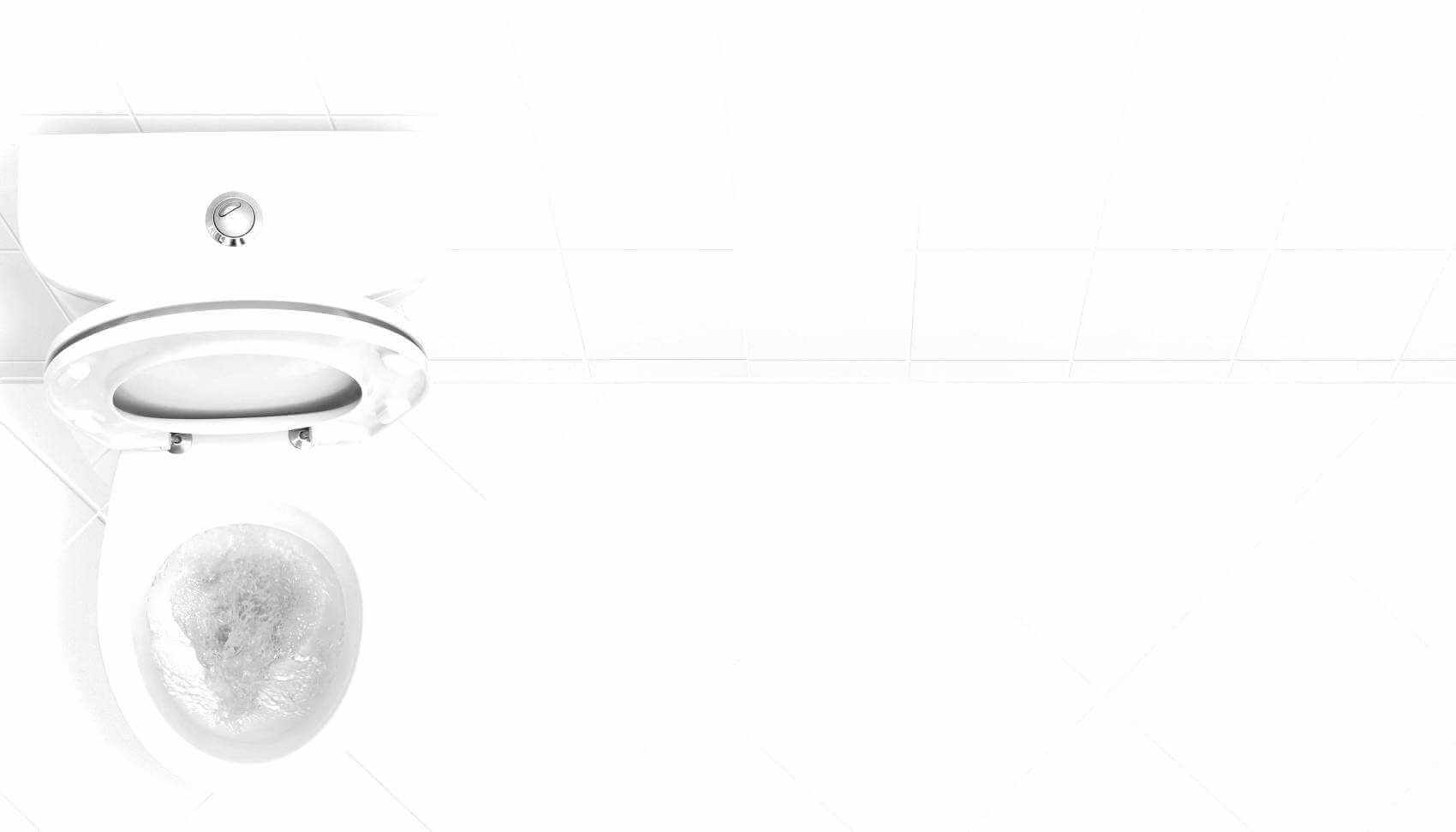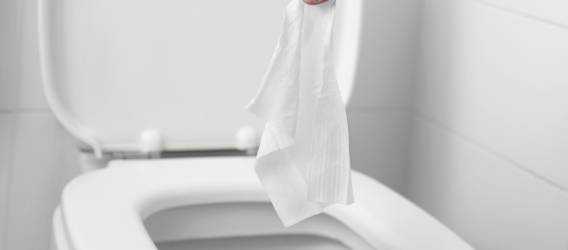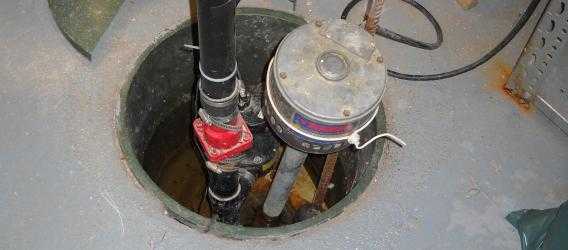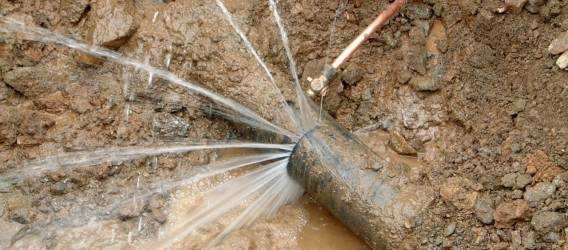Sewer/wastewater backups can be caused by severe flooding or by a plugged wastewater connection. Over time, tree roots, grease or other debris can build up in the connection eventually causing a blockage. Here is some helpful information for preventing or dealing with backups.
If your basement floods, call Halifax Water Customer Care Centre 902-420-9287, 24 hours a day, 7 days a week.
Basement flooding could be related to a number of things, including:
- A blockage in the sanitary sewer system, which can cause the system to backup and flood from the floor drain, toilets, sinks, showers, and laundry fixtures located in the basement
- Backup when the sewer system becomes overwhelmed with stormwater
- A crack or leak in your home's foundation, basement walls, or basement windows or door
- Poor lot grading or drainage
- Failure of the weeping tile system (foundation drains)
- Failure of a sump pump to pump weeping tile water
- Overflowing eavestroughs
- Leaking or plugged downspouts
Halifax Water needs as much information as possible, including:
- Where is the water coming from?
- When did it start?
- How much water is there?
- What is the clarity of the water?
Determining the cause of basement flooding is not always easy. Over time, tree roots, grease, and other debris can build up in the lateral, eventually causing blockage. Sometimes the lateral has actually collapsed.
![]()
Halifax Water is responsible for the sewer main, which is located under the street and ends at your property line. You are responsible for your wastewater lateral, which is the pipe and connections running from the property line to your house.
If the sewer lateral or interior plumbing is causing the backup, you are responsible for its repair and maintenance. If, after receiving a video inspection and a written report from a certified plumber and Halifax Water determines that the obstruction is located on Halifax Municipality property or easement, Halifax Water will be responsible for the repair and maintenance.
If it is determined that Halifax Water is responsible, you will be reimbursed for the cost of plumbing and video services in an amount not exceeding $400.00, including HST. For full details please see Section 62, “Repairs to Wastewater and/or Stormwater Service Connections” in the Halifax Water Regulations.
In addition to calling Halifax Water Customer Care Centre 902-420-9287, you should:
- Call your insurance company as soon as possible and report any damage caused by the flooding.
- Be careful when cleaning up. A flooded basement poses a risk of electrical shock and, if it is a sewer backup, the flood water likely contains bacteria which can be harmful to your health.
- Consider getting help with the cleanup from professionals. Look up "Water Damage Restoration" in the Yellow Pages or on the Internet.
- You may need to obtain the services of a certified plumber to identify the problem and clear the blockage or obstruction in the lateral and internal plumbing.
- Likewise for stormwater-related flooding, you may need to contact a contractor to investigate your drainage issues.
- Talk to a certified plumber about installing a backwater valve, if there is not one already. This device is designed to prevent flow in the reverse direction.
- As a preventative measure, have your wastewater connection inspected regularly to ensure it is free-flowing. In addition, ensure that the lateral is not damaged allowing stormwater to enter the wastewater system.
- Do not flush products down the toilet that may cause a blockage. For example, do not flush:
- wipes
- diapers
- sanitary products
- dental floss
- rags
For more information check out preventing pollution of Halifax’s water system
- Do not pour fat, oil, and grease down the drain. This can build up and cause blockage of your sewer lateral on your property and the wastewater system in the street. For more information check out preventing pollution of Halifax’s water system.
- Stormwater from your sump pump, downspouts, and other stormwater fixtures can not be connected to the wastewater system. The extra volumes of water overwhelm the wastewater system and may cause backups into your and your neighbours’ basements. It may also cause overflows into the environment (lakes, beach closures, manhole overflows, etc.). For more information check out stormwater inflow and infiltration in Homeowner's Responsibilities.
- Direct stormwater water away from your foundation, including the water from your downspouts and sump pumps. Direct the flow to areas such as rain gardens, lawns, ditches, ponds, streams, and lakes. Consider using rain barrels to collect water for future use. Avoid causing erosion of the soil and flooding neighbouring properties. Avoid causing icing problems on adjacent properties, sidewalks and driveways.
- If groundwater is entering your basement through the foundation or from your sump pump pit, you will need to consider the structure of your basement and foundation. Ask your plumber or contractor the following questions:
- Is the weeping tile damaged and not allowing water to drain away from my foundation?
- Are there cracks in my foundation walls/floor that should be fixed?
- Is the pump big enough to handle the flow?
- Should I have a backup power supply for my sump pump for when the power goes out?



